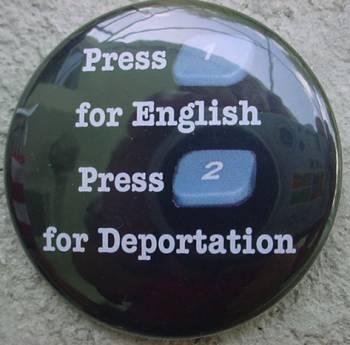English WINS in Florida Court
The Eleventh Circuit Court of Appeals has upheld an earlier ruling from the U.S. District Court that product manufacturers and distributors are not obligated to provide warnings in languages other than English. The ruling applies to both assembly instructions and manuals for consumer products. This is the second victory for English in the courts in the past few months. The Arizona Supreme Court recently defended English proficiency as a requirement to run for public office.
This new ruling stems from a 2009 incident when a Florida resident who understands only Spanish bought two propane heaters from Home Depot in Miami. The woman mistakenly used the heaters indoors, even though they were outdoor-only heaters, and the resulting fire caused hundreds of thousands of dollars in damage to her home.
The woman sued both the manufacturers of the heaters as well as Home Depot claiming they were liable since the safety and assembly instructions on the heaters were provided not in Spanish, but only in English.
Subsequently in 2010, the U.S. District Court ruled that the woman exhibited “willful ignorance” in assembling the products without understanding the instructions and neglecting to seek additional assistance, and just last week, the Eleventh Circuit concurred that the English-only safety warnings were adequate and noted that even though the woman did not speak English, the pictures on the instructions were perfectly clear.
The English Language Unity (ELU) act has been introduced in Congress – S. 503 and H.R. 997. The English language advocacy group Pro-English supports the ELU act.


